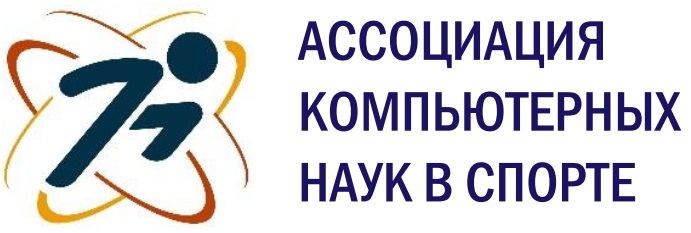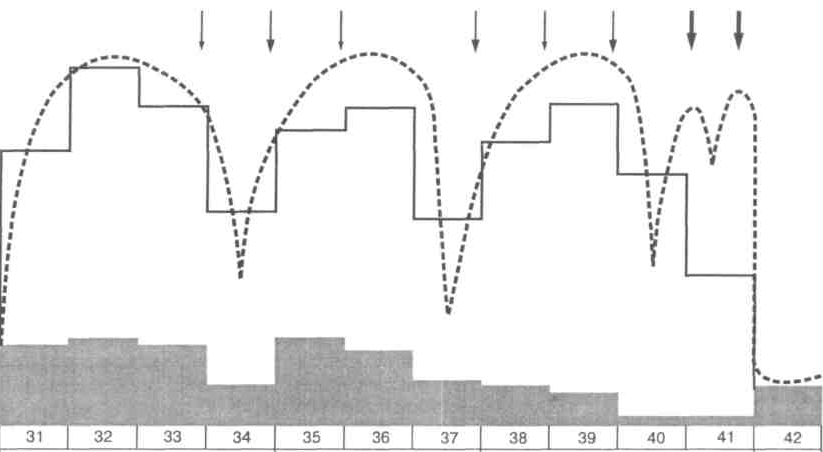Moscow, Russian Federation
VAK Russia 5.8.4
VAK Russia 5.8.5
VAK Russia 2.2.12
UDC 796.015
UDC 796.015.2
CSCSTI 77.00
CSCSTI 20.00
Russian Classification of Professions by Education 02.00.00
Russian Classification of Professions by Education 06.00.00
Russian Classification of Professions by Education 32.00.00
Russian Library and Bibliographic Classification 22
Russian Library and Bibliographic Classification 28
Russian Library and Bibliographic Classification 75
Russian Trade and Bibliographic Classification 5
Russian Trade and Bibliographic Classification 2352
BISAC COM017000 Cybernetics
BISAC COM018000 Data Processing
BISAC COM062000 Data Modeling & Design
BISAC COM032000 Information Technology
BISAC COM077000 Mathematical & Statistical Software
Relevance. The 1960s and 70s in the USSR were marked by the beginning of the active application of mathematical methods in sports, which made it possible to move from intuitive training planning to accurate calculations of training loads and prediction of athletic performance. One of the first mathematicians who thought about translating the empirical rules and principles of sports training into mathematical language was Nikolai Nikolaevich Engver, Doctor of Economics. The ideas expressed and the mathematical models proposed by him are undeservedly forgotten. This article will allow a wide range of readers to get acquainted with the ideas and legacy of this scientist. The objectives of this work were the systematization, interpretation and comparative analysis of the ideas, methods and results of Doctor of Economics, Professor Nikolai Nikolaevich Engwer, who developed an original mathematical model of the relationship between training loads and sports results, which allows predicting the growth of the best results based on controlled parameters - intensity and volume of training, as well as to determine the patterns of adaptation of the athlete’s body to increased loads. Materials and methods. The analysis of scientific papers and biographical materials by N.N. Engwer devoted to the development and application of methods of mathematical statistics and the theory of automatic control systems to the analysis of athletes’ training and the construction of training plans was carried out. Results. The results of scientific research by N.N. Engwer are systematized, who built a mathematical model of the training process, including 1) the dependence of the maximum result of an athlete on the average intensity of training and their volume; 2) the equation of effectiveness of training loads; 3) the equation of habituation (adaptation) of the body to work with increased intensity. He developed practical recommendations on load dosing and planning of the training process. It has been experimentally confirmed that the model makes it possible to accurately predict the growth of athletic performance. The model of N.N. Engwer is compared with the model of E. Banister. It was found that the Engwer model is suitable for operational planning of microcycles (weeks/months), and the Banister model is optimal for long-term management of the training process (months/years).
mathematical modeling of the training process, equation of athletic performance, volume of training load, intensity of training load, body adaptation to load
1. Promin S.A. The "Golden Age" of domestic sports science and the journal "Theory and Practice of Physical Culture" (1969-1980). Theory and Practice of Physical Culture, 2015, (6), pp. 6-7. (in Russ.) EDN: https://elibrary.ru/uacbbp
2. Timme E.A., Bogomolov A.V. Scientific communications in sports informatics. Sports-Pedagogical Education, 2018, (1-2), pp. 183-191. (in Russ.) EDN: https://elibrary.ru/yavkfn
3. Engwer N.N. Irreparability of Evil. Moscow: Litres, 2022. 380 p. (in Russ.) ISBN 978-5-94201-566-4
4. Engver, Nikolai Nikolaevich [Electronic resource]. URL: https://ru.ruwiki.ru/wiki/Энгвер_Николай_Николаевич (Accessed: 02.07.2025)
5. Engwer N.N. Extrapolation in the processing of short chronological series in economics. Bulletin of Moscow University, 1978, pp. 6. (in Russ.)
6. Engwer N.N. Mathematical and statistical methods for building economic forecasts: preparation of warning information in economics. Izhevsk: Udmurtia, 1976. 302 p. (in Russ.)
7. Engwer N.N. The problem of choosing a form of connection in mathematical and statistical processing of economic information: Abstract of Cand. Sci. (Econ.) Dissertation. Moscow, 1970. 24 p. (in Russ.)
8. Engwer N.N. Main problems of economic forecasting. Problems of Regression Analysis, Economic Functions, and Economic Forecasting: Proceedings of the Scientific Conference. Riga, 1970, pp. 53. (in Russ.)
9. Engwer N.N. The equation of sports results. Preparation of Warning Information (Methodological Recommendations). Riga, 1970, pp. 73-76. (in Russ.)
10. Engwer N.N., Savitskiy Ya.I., Gibanulin M.G. Construction of empirical formulas and models in sports. Theory and Practice of Physical Culture, 1986, (10), pp. 35-37. (in Russ.)
11. Bailey N., Thomas D. Mathematics in Biology and Medicine. Moscow: Mir, 1970. 326 p. (in Russ.)
12. Fichtenholz G.M. Course of Differential and Integral Calculus, Volume 1. Moscow: Ripol Classic, 1966. 616 p. (in Russ.)
13. Millsum D. Analysis of Biological Control Systems. Moscow: Mir, 1968. 501 p. (in Russ.)
14. Banister E.W., Calvert T.W., Savage M.V., Bach T.M. A systems model of training for athletic performance. Australian Journal of Sports Medicine, 1975, 7(3), pp. 57-61.
15. Calvert T.W., Banister E.W., Savage M.V., Bach T. A systems model of the effects of training on physical performance. IEEE Transactions on Systems, Man, and Cybernetics, 1976, SMC-6(2), pp. 94-102. DOI: https://doi.org/10.1109/TSMC.1976.5409179
16. Fukuba Y., Hugh Morton R. Professor Eric W. Banister 1932—2010: an obituary. European Journal of Applied Physiology, 2011, 111, pp. 2631-2632. DOI: https://doi.org/10.1007/s00421-011-1904-5
17. Gerasimov B.I., Puchkov N.P., Protasov D.N. Differential Dynamic Models: A Textbook. Tambov: TSTU Publishing House, 2010. 80 p. (in Russ.) ISBN 978-5-8265-0947-0
18. Frolov I.T. Essays on the methodology of biological research. Moscow: URSS, 2007. 286 p. (in Russ.) EDN: https://elibrary.ru/qkpuqh














